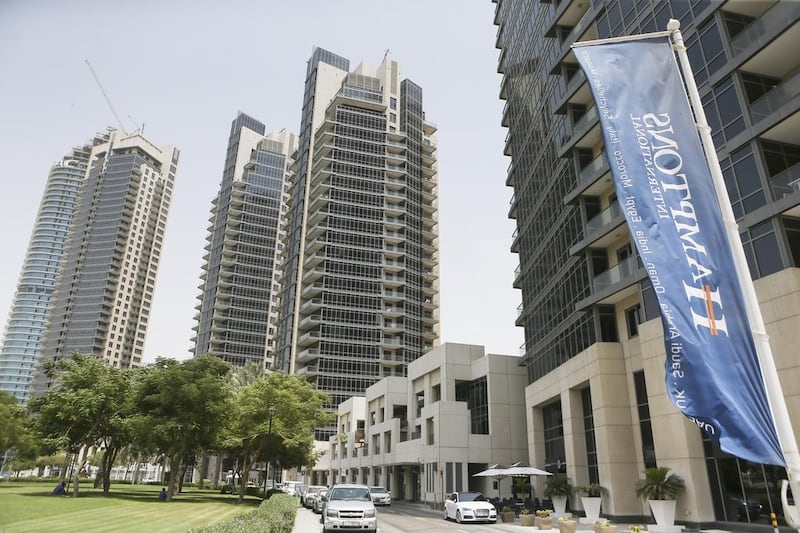Experts who have been calling the bottom of Dubai’s residential property market may be doing so too soon, as further price declines are likely over the next few months, according to Dubai-based Phidar Advisory.
The company’s latest research note on the property market states that rent declines are getting steeper, which is likely to lead to a price slump in the coming months.
“Talk of a house price floor is entering the media again, yet our research indicates rent declines are accelerating and will likely continue through the summer,” said Jesse Downs, the managing director of Phidar Advisory.
Rent declined by 1.3 per cent month-on-month in May, compared with a compound monthly average decline of just 0.3 per cent since the most recent market peak in May 2014, Phidar said on Sunday in the note.
“The first 18 months of the decline was driven by the strong dollar, which impacted investment demand directly,” said Ms Downs. “But now, what’s happening is we’re seeing the delayed impact of low oil prices on regional liquidity and the impact that has on Dubai employment and demographics. Businesses are finding it harder to grow.”
This has weakened demand, although supply has remained fairly constant in recent years, with an average of 20,000 new homes entering the marketplace per year.
One anomaly in Dubai is that in weaker markets more rental stock becomes available as investors who do not see an immediate prospect of selling their home decide to lease it instead. This can cause a rush to the bottom among landlords keen to let stock.
Phidar pointed to a 4.1 per cent monthly decline in asking rents at the lower limits of price brackets during the first week of this month, compared with a month earlier.
“A lot of contracts are still signed during the summer, especially people who come with their families and I think landlords are realising they are being given notice and are finding it difficult to find new tenants,” said Ms Downs.
“Supply and demand is a moving target. If prices come down significantly, it can appeal to people and draw them back in from places like Sharjah. There’s about 1 million people who commute to Dubai every day, so technically there is a lot of pent-up demand, but a lot of those people are also priced out of the market.”
Property consultancy Cavendish Maxwell has just begun its quarterly survey of agents in Dubai and will report its findings next month, but its research manager, Manika Dhama, said that the majority of agents at the end of the first quarter had predicted apartment and villa rents would decline by up to a further 5 per cent, and its quarter-end analysis indicated a lower drop of 3 per cent.
“For Q2 2016, the majority of agents had predicted a largely stable outlook for apartment and villa rents and sales,” said Ms Dhama.
“Early indicators seem to suggest this might be true, though an independent analysis is ongoing and will form part of our report.”
Others have been much more optimistic, indicating that Dubai’s residential property market is now either at – or near – its nadir after two years of declining capital values. The research company Valustrat revealed last week that there is “a continuation of evidence of price stabilisation”, after its index reported an eighth straight month without a price decline.
Sameer Lakhani, the managing director of research company Global Capital Partners, said last month that markets bottomed out at the start of this year. Craig Plumb, the head of Mena research at brokers JLL, said in April that he expected a recovery in prices by the end of this year.
mfahy@thenational.ae
Follow The National's Business section on Twitter







